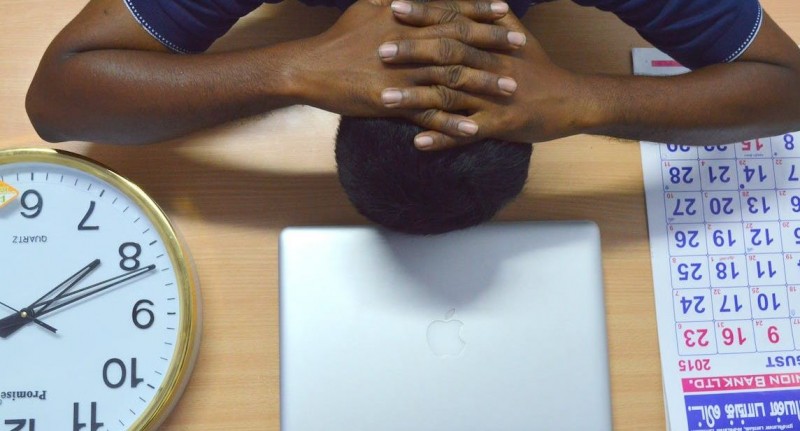
Stress has become an unavoidable part of modern life, affecting people of all ages and backgrounds. It can stem from various sources, such as work, relationships, financial pressures, and personal challenges. While a certain level of stress can be motivating, chronic or excessive stress can have a detrimental impact on our physical and mental well-being. In this article, we will explore the concept of stress, its effects on health, and practical strategies for managing stress effectively.
1. Understanding Stress
Stress is the body's natural response to demanding or threatening situations. It triggers a series of physiological and psychological reactions, preparing us to deal with the perceived threat. While short-term stress can enhance our performance and alertness, chronic stress can have severe consequences for our health.
2. The Link between Stress and Health
Stress can affect various aspects of our health, including physical, emotional, and cognitive well-being. Prolonged exposure to stress can weaken the immune system, increase the risk of cardiovascular diseases, and contribute to mental health disorders like anxiety and depression.
3. Physical Effects of Stress
Chronic stress can lead to physical symptoms such as headaches, muscle tension, fatigue, and digestive issues. It can also exacerbate existing health conditions such as asthma, arthritis, and chronic pain.
4. Psychological Effects of Stress
Stress can significantly impact our mental health, leading to symptoms such as irritability, mood swings, difficulty concentrating, and sleep disturbances. It can also contribute to the development of anxiety disorders and depression.
5. Identifying Stress Triggers
Recognizing the factors that trigger stress is essential for effective stress management. It can vary from person to person, but common stressors include work-related pressures, financial problems, relationship difficulties, and major life changes. Identifying these triggers allows us to develop targeted coping strategies.
6. Coping Mechanisms for Stress Management
Managing stress involves adopting healthy coping mechanisms. This can include practicing relaxation techniques, engaging in physical activity, seeking support from loved ones, and making lifestyle changes to reduce stress levels.
7. The Importance of Self-Care
Self-care plays a crucial role in stress management. Taking time for oneself, engaging in activities that bring joy and relaxation, and prioritizing self-care can help reduce stress levels and promote overall well-being.
8. Seeking Support from Others
Building a strong support network is vital for managing stress effectively. Sharing our concerns and seeking emotional support from trusted friends, family members, or professionals can alleviate stress and provide valuable perspectives.
9. Incorporating Relaxation Techniques
Relaxation techniques, such as deep breathing exercises, meditation, and mindfulness, can help calm the mind and body. Regular practice of these techniques can reduce stress, enhance resilience, and improve overall mental health.
10. The Role of Exercise in Stress Reduction
Physical exercise is a powerful tool for stress reduction. Engaging in regular exercise releases endorphins, the body's natural mood-boosting chemicals, and promotes better sleep. Aim for at least 30 minutes of moderate-intensity exercise most days of the week.
11. Healthy Lifestyle Habits for Stress Management
Adopting a healthy lifestyle can significantly impact stress levels. Prioritize nutritious meals, maintain a regular sleep schedule, limit caffeine and alcohol consumption, and avoid excessive use of electronic devices, as they can contribute to stress and disrupt sleep patterns.
12. Mindfulness and Meditation
Practicing mindfulness and meditation can enhance self-awareness, reduce anxiety, and increase resilience to stress. Set aside a few minutes each day to focus on the present moment, observe your thoughts without judgment, and cultivate a sense of inner calm.
13. Time Management and Prioritization
Effective time management and prioritization can alleviate stress caused by overwhelming workloads or deadlines. Break tasks into manageable chunks, set realistic goals, and delegate when possible. Remember to schedule regular breaks to rest and recharge.
14. Balancing Work and Personal Life
Maintaining a healthy work-life balance is crucial for stress management. Set boundaries between work and personal life, and make time for activities you enjoy outside of work. Engage in hobbies, spend quality time with loved ones, and schedule regular relaxation periods.
Managing stress is essential for maintaining overall health and well-being. By understanding the impact of stress on our physical and mental health and implementing effective strategies for stress management, we can lead happier, healthier lives. Prioritize self-care, seek support from others, and incorporate relaxation techniques into your daily routine. Remember that managing stress is an ongoing process, and it requires a proactive approach
Importance of Regular Medical Check-ups